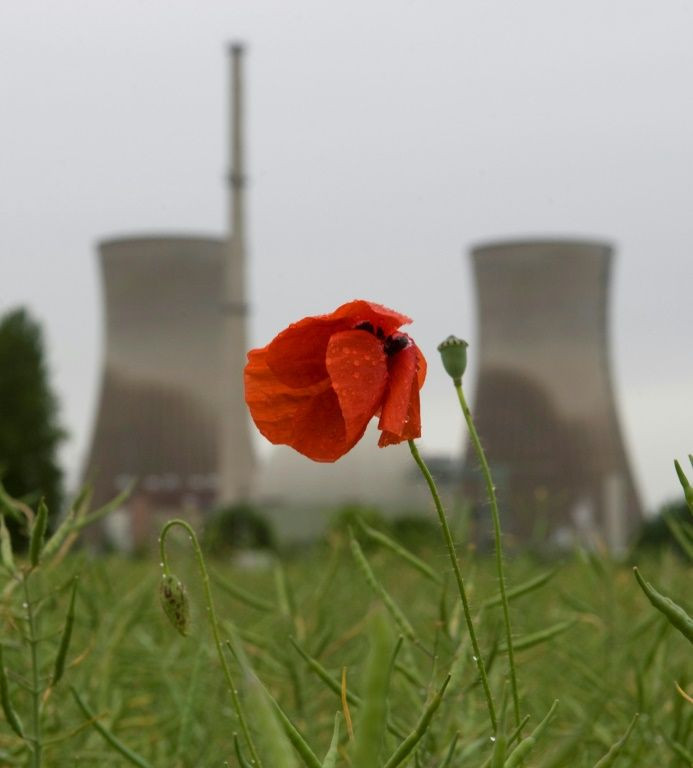Germany Prepares To Phase Out Nuclear Power, But At What Cost?

KEY POINTS
- Germany plans to shut down its remaining seven nuclear plants by the end of 2022
- Brokdorf nuclear power plant has been producing electricity for almost 35 years
- Germany will not shut down its coal power plants until 2038
As Germany prepares to shut down the last of its nuclear power plants by the end of 2022, residents who live in proximity to these facilities worry about their economic futures.
For example, the Brokdorf nuclear power plant, located just north of Hamburg, has been producing electricity for almost 35 years. But it will be closed and decommissioned on Dec. 31 of next year.
The plant is a major employer in the tiny village of Brokdorf – population 1000.
"Where are our children going to find places to work? That is a problem," said the Mayor of Brokdorf, Elke Göttsche.
Chancellor Angela Merkel decided to gradually phase out nuclear power in Germany after the Fukushima Daiichi disaster in 2011 in Japan.
While Germany has vowed to spend 40 billion euros ($42.6 billion) to compensate the country's coal mining regions as it also prepares to phase out coal energy, Göttsche said they should do something similar for towns like hers.
"They have invested several billion [euros] for the end of coal power. The government should look at also supporting the end of nuclear power," she said.
Germany will not shut down its coal power plants until 2038.
Environmentalists want both nuclear and coal energy eliminated from Germany.
"Neither coal power nor nuclear power has a future. And that’s why we need to transform the energy production in Germany and in Europe," said Manfred Braasch, the head of Hamburg NGO BUND, a member of Friends of the Earth.
Last year, renewable energy provided 46% of Germany’s net electricity generation, exceeding fossil fuel’s share for the very first time.
Meanwhile, nuclear’s profile has declined.
In 2002, nuclear power accounted for 30.9% of German commercial energy generation – by 2020, that figure was down to 11.9%.
Ironically, while Germany is on a mission to reduce its CO2 [carbon dioxide] emissions, it also seeks to remove nuclear power – a form of carbon-free energy.
Germany currently has seven nuclear power reactors in operation, while 23 other nuclear power reactors are undergoing decommissioning. Three nuclear power plants have already been fully dismantled.
Germany’s seven active nuclear reactors provide 12% of its electricity (while more than 40% of the country’s electricity comes from coal).
Indeed, in the years since Fukushima, Germany has become more dependent on coal-fired energy sources, which has, in turn, released more greenhouse gases in the form of carbon dioxide.
Late last year, the National Bureau of Economic Research estimated that the annual cost of Germany’s nuclear phase out will amount to some $12 billion. Most of that figure (70%) will arise from the consequences of burning more fossil fuels – i.e., due to the increased mortality risk from more air pollution.
“The phase-out resulted in more than 1,100 additional deaths per year from increased concentrations of [sulfur dioxide], [nitrogen oxide], and [particulate matter[,” the NBER said. “The increase in production from hard coal plants is the key driver here, making up roughly 80% of the increase in mortality impacts.”
Economist Stephen Jarvis, one of the author’s of the study, said he was surprised by these findings.
“One of the most striking findings in our study is that by far the largest cost of the [nuclear] phase-out is the increased mortality risk associated with exposure to local pollution,” Jarvis said. “Despite this, most of the discussion of the phase-out, both at the time and since, has focused on electricity prices and carbon emissions -- air pollution has been a second order consideration at best.”
But most of the German public, as well as mainstream political parties, endorse the end of nuclear power.
“What is important to realize is that this [nuclear phase-out] is a done deal -- the ship has sailed,” said Benjamin Görlach, an economist at Germany’s Ecologic Institute, a think tank. “You don't just phase out a big power plant from one day to another, but you have to plan these things, in terms of backup capacity [permitting and building], grid infrastructure, working out plans for the staff, etc. All these plans have been made, and are being executed.”
Reopening nuclear plants in Germany would be too costly and politically unfeasible.
“No German politician will withdraw this decision [to exit nuclear] as this would endanger the credibility of German politics in general,” said Brigitte Knopf of the Mercator Research Institute on Global Commons and Climate Change. “In addition… the operators of the nuclear power plants do not want to extend [their plants’] lifetime. This is something they made very clear last year, when the debate came up again.”
© Copyright IBTimes 2025. All rights reserved.





















